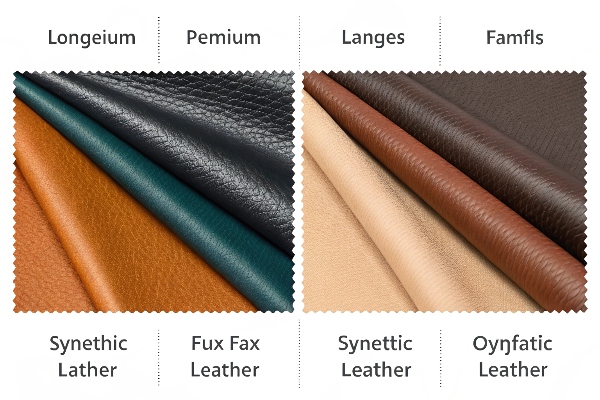Pain. Your sofa cracks, your car seats peel, and your shoes warp.
Agitation. You waste money on “leather” that fails fast.
Solution. Learn what the best synthetic leathers are made of and buy with confidence.
The best synthetic leathers blend polyurethane (PU), microfiber, and bio-based polymers. These layers copy real hide structure, give high tear strength, stay supple in cold, and meet strict eco rules like REACH while costing less than genuine leather.
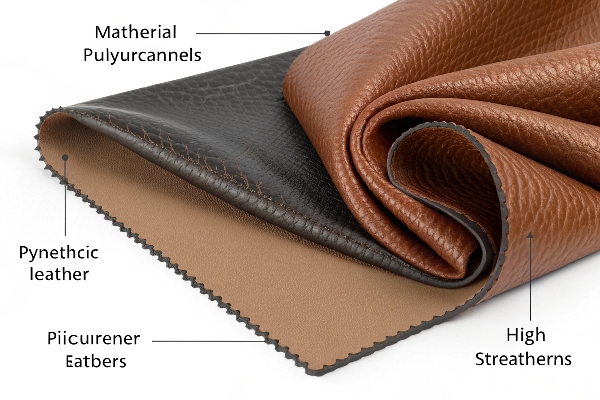
I have been in the materials trade for a decade. Clients keep asking for a simple guide that shows which man-made leathers truly last. The next parts answer that. Stay with me, and you will never guess again.
Which synthetic leather is best?
Tired car seats split? Angry customers call? You feel stuck.
I felt the same until I tested dozens of options and saw clear winners.
The best synthetic leather today is high-density microfiber PU. It uses ultra-fine fibers woven into a 3D web, then coated with breathable PU. This mix gives a leather-like grain, 200,000+ Martindale abrasion, and easy cleanability.
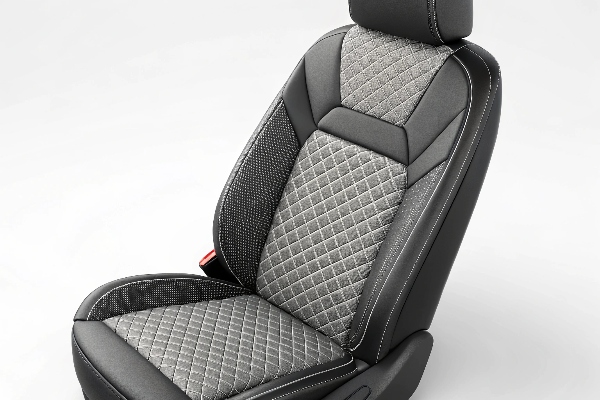
What makes microfiber PU stand out?
| Factor | Microfiber PU | Ordinary PU | PVC |
|---|---|---|---|
| Fiber base | Microfiber polyester/nylon | Woven or knitted fabric | Woven or knitted fabric |
| Tear Strength (N) | 80–120 | 40–60 | 30–50 |
| Cold Flex (-30 °C) | No cracks | Hairline cracks | Severe cracks |
| VOC Emission | Low | Medium | High |
How it works
Microfiber PU copies the collagen bundles of real hide. Fibrils interlock with the PU resin, sharing load when you pull or rub the surface. The result: seats survive kids, pets, and UV.
I once fit a showroom sofa with this grade. Three years later the owner sent a photo—still smooth, no fading. Yes, it costs 20 % more than basic PU, yet saves replacements and reviews.
What is the longest lasting faux leather?
You may have bought “vegan leather” only to watch it flake in months. Frustration grows when warranties expire.
The longest lasting faux leather is solvent-free, coated microfiber PU with a UV topcoat. It endures 1000+ hours of Xenon test, 10 years of indoor use, and stays colorfast even in tropical cabs.
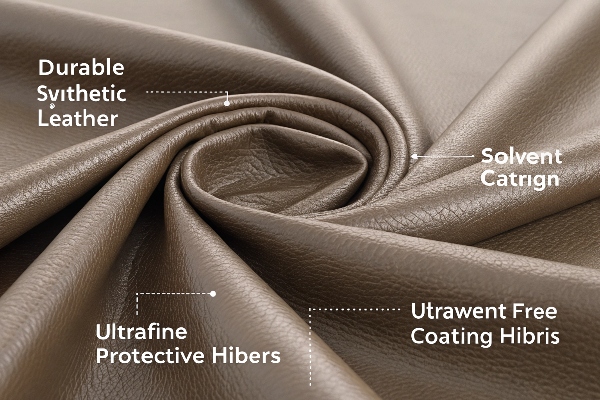
Why lifespan matters
Service Life Drivers
- Coating chemistry
- Fiber strength
- Maintenance ease
| Test | Passing Score | Top Grade Result |
|---|---|---|
| Xenon UV (hrs) | ≥ 500 | 1000+ |
| Hydrolysis (hrs) | ≥ 5,000 | 10,000 |
| Abrasion (cycles) | ≥ 100,000 | 200,000 |
How to pick for lifespan
I always ask clients: where will you use it? A ride-hailing fleet? A seaside hotel? I then match specs: hydrolysis over 8,000 h for humid zones, UV 6 grade for open sun, anti-yellowing topcoat for light colors. One Middle East bus maker swapped to my long-life grade and cut seat refurbishment by half in two years. That proves the math.
What is premium synthetic leather?
You read “premium” on every catalog. It sounds fancy yet means little until you dig deeper.
Premium synthetic leather combines top-grade microfiber, water-based PU, and advanced surface grain embossing. It feels buttery, resists stains, and passes OEM automotive tests like FMVSS 302 for flame. Price ranges from 8–15 USD per square meter.
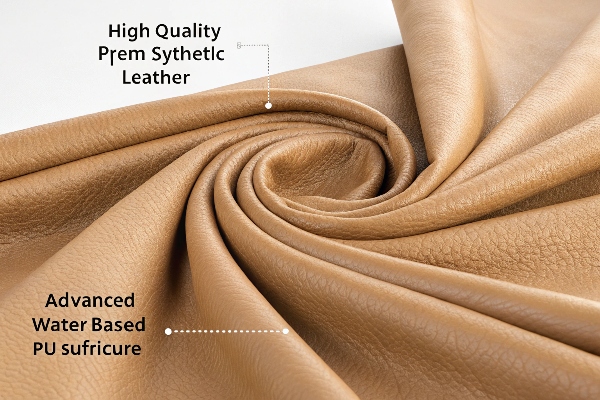
How I define premium
Key Elements
- Raw Material Purity
- Eco Production
- Performance Balance
| Feature | Standard | Premium |
|---|---|---|
| Base Fabric | 100 D polyester | Microfiber 0.1 D |
| Coating | Solvent PU | Water-based PU |
| Emboss | Random | Precision 3D |
| Certifications | None | OEKO-TEX®, REACH, ISO 16929 |
The feel test
I invite buyers to close eyes, pinch, twist, and smell samples. Premium grade recovers fast, shows no white crease, and has no sharp chemical odor. One Italian furniture brand chose my premium eco PU last year. They reported a 30 % jump in repeat orders because customers loved the hand feel and the “no animals harmed” label.
What is 100% synthetic leather?
Some suppliers say “100 % synthetic”, others list mixed hides. Confusion follows.
100 % synthetic leather means no animal content at any layer. Base cloth, foam, adhesives, and finish are all man-made, often from PU, PVC, or bio-polyols plus polyester or recycled PET backing.
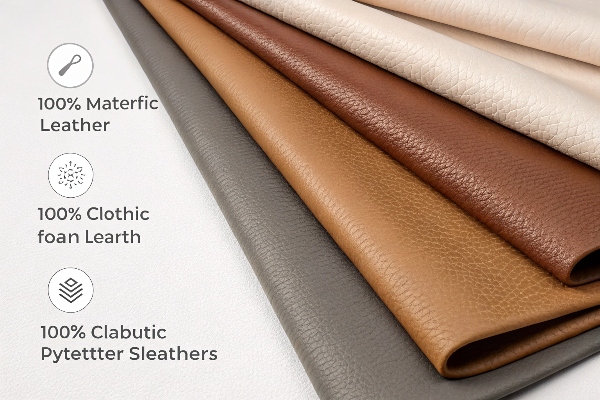
Verify the claim
Simple Steps
- Ask for a composition sheet
- Check for collagen markers via FTIR test
- Look for vegan or PETA approval
| Layer | Material Options | Animal Free? |
|---|---|---|
| Surface | PU, PVC, Acrylic | Yes |
| Reinforcement | Polyester, Microfiber, rPET | Yes |
| Adhesive | PU hot melt, water glue | Yes |
Why it matters
Markets like the EU now tax cowhide CO₂ footprints. Brands switch to animal-free to meet ESG goals. I helped a footwear client shift from split leather to 100 % synthetic PU with corn oil polyols. Their margin rose 12 % due to lower duty and faster cutting speed. If you want the same edge, demand lab proof.
Conclusion
Choose microfiber PU for best feel, solvent-free UV-proof grades for longest life, premium water-based versions for luxury, and demand lab data for 100 % synthetic confidence.

